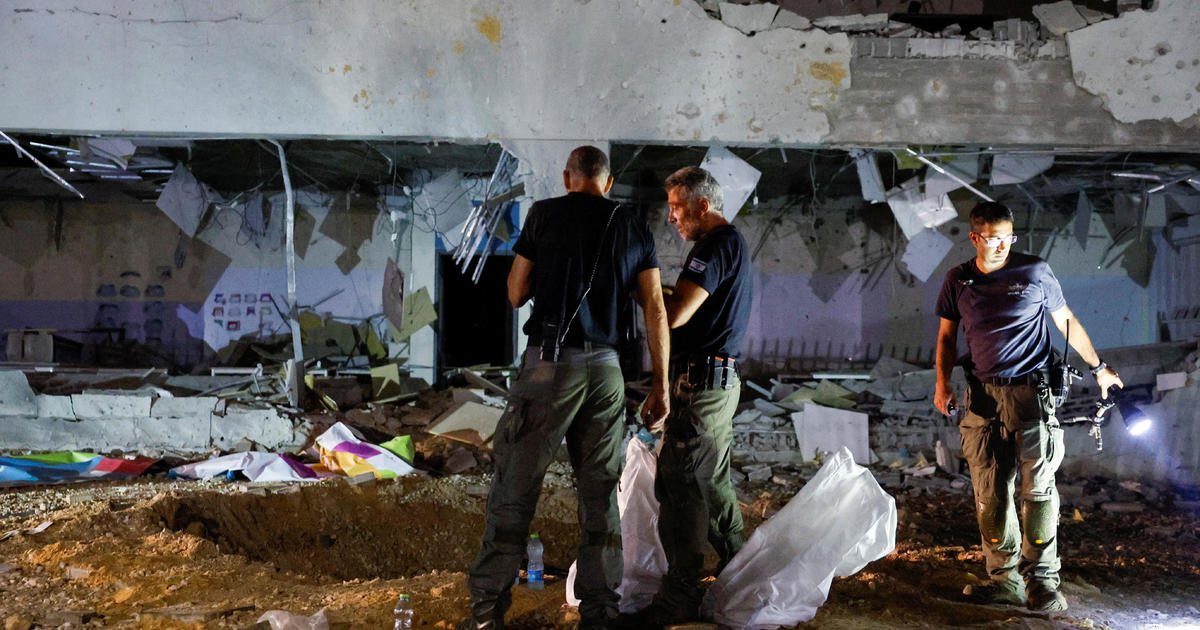The escalating conflict between Israel and Iran reached a new level of intensity with a significant missile attack launched by Iran against Israel. The attack, which occurred on the eve of Rosh Hashanah, prompted immediate reactions from both sides and drew international concern regarding the potential for wider regional conflict. This situation underscores the complex dynamics of the Middle East and highlights the need for de-escalation and diplomatic efforts to prevent further escalation. The events of this attack, its aftermath, and the global response warrant a closer look into its implications.
Iran’s Missile Attack and Israel’s Response
The Scale of the Attack and Initial Reactions
Iran launched a barrage of at least 180 ballistic missiles towards Israel, targeting locations from Tel Aviv to Jerusalem. The attack triggered immediate alerts across the country, urging citizens to seek shelter. While Israel’s air defense systems intercepted many of the incoming missiles, some did land in southern and central Israel, causing damage and injuries. The Israeli government, under Prime Minister Benjamin Netanyahu, swiftly condemned the attack, vowing strong retaliation and emphasizing their determination to defend themselves. Netanyahu’s statement, delivered shortly after the attack, explicitly declared that Iran would “pay for it” and that Israel would respond with equal force against any aggressor. This initial response set a firm tone, signaling Israel’s resolve in confronting Iran’s aggression. The speed and decisiveness of Netanyahu’s reaction underscored the severity of the situation and its impact on Israel’s national security. The swift condemnation and vow of retaliation aimed to deter further attacks and project an image of strength and resolve to both its citizens and adversaries.
The Role of the US and International Condemnation
The United States played a significant role in Israel’s defense against the attack. Defense Secretary Lloyd Austin confirmed that US forces in the Middle East intercepted multiple Iranian missiles, calling the attack an “outrageous act of aggression.” This level of involvement underscores the deep strategic alliance between the two nations and the potential ramifications of escalating tensions in the region. The international community, including the United Nations, largely condemned the Iranian attack, calling for an immediate cessation of hostilities and a return to diplomatic efforts to prevent a larger-scale conflict. The statement from the UN Secretary-General Antonio Guterres, highlighting the need for a ceasefire, showcased a concerted global effort to manage the escalation and advocate for peaceful resolution. However, amidst these condemnations, the specific actions or sanctions threatened remain uncertain. This international response represents a widespread acknowledgment of the perilous escalation and a unified plea for restraint on all sides.
The Underlying Causes and Context of the Conflict
The Recent Escalation in the Middle East
The Iranian missile attack did not occur in isolation. It followed a period of heightened tensions in the region marked by several key events, including Israeli airstrikes in Lebanon and the assassination of key figures affiliated with Hamas and the Iranian Revolutionary Guard Corps (IRGC). Israel’s actions, such as the reported assassination of Ismail Haniyeh and Hassan Nasrallah, have understandably served as major triggers, exacerbating an already volatile situation. This chain of events highlights the complex interplay of proxy conflicts and retaliatory actions that fuel regional instability. Understanding these events necessitates an evaluation of the underlying conflicts and rivalries driving the crisis, which goes beyond simple tit-for-tat reactions. These reciprocal actions, along with underlying geopolitical factors and past grievances, create a dangerous feedback loop of increasing violence.
Iran’s Justification and Perspective
Iran’s government framed the missile attack as a legitimate and necessary response to Israel’s actions, citing prior Israeli attacks and alleged infringements on Iran’s national sovereignty and interests. This justification, while condemned internationally, reveals a perspective where the ongoing escalation is seen as self-defense and a necessary response to prior aggressions. By painting itself as a victim responding to attacks against its interests, Iran sought to garner internal support for the retaliatory measures. While this portrayal may not resonate universally, analyzing the motivations behind such a justification aids in navigating the conflicting narratives around the crisis and its causes.
Potential Ramifications and Future Outlook
The Risk of Wider Conflict and Regional Instability
The exchange between Israel and Iran raises concerns about potential escalation and the expansion of the conflict to a broader regional war. The involvement of various actors, including proxy groups, presents significant complexities and makes containment more difficult. With US troops stationed in the region and close ties between the U.S. and Israel, the potential for unintended escalation represents a major international concern. The precarious geopolitical balance could be further disrupted, given the widespread tensions, economic interdependencies, and international alliances affected. The impact of further military actions or strategic decisions on innocent civilians also raises substantial humanitarian considerations, which should be prioritized in seeking de-escalation measures.
The International Response and Diplomatic Efforts
The international community’s role in de-escalating the situation is critical. Efforts towards diplomatic engagement and mediating solutions to prevent further violence become essential considerations. The UN Secretary General’s call for a ceasefire highlights the seriousness of the potential for uncontrolled escalation, leading international pressure for all actors to prioritize peaceful conflict resolution. Success will require a balance of restraint and determination to ensure that future international diplomatic initiatives address both underlying and immediate issues that can propel the current conflict forward. These efforts to seek a diplomatic path need continued coordination between international allies and actors and ongoing dialogue between parties to facilitate progress towards a resolution.
Takeaway Points:
- The recent missile attacks marked a significant escalation in the ongoing conflict between Israel and Iran.
- The attacks’ underlying causes are complex and deeply rooted in regional rivalries and past actions.
- The potential for broader conflict and regional instability remains a serious concern.
- The international community’s response has been crucial in attempting to de-escalate the situation and encourage diplomatic resolutions.




